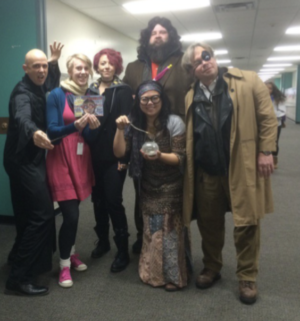I, For One, Bow Down To My New Phone Overlords.
May 9, 2016
Note that this will be even more incomprehensible than my usual ravings. Proceed with caution.
Last November (had to pull out my phone to check the date), my uncle Ryan died suddenly. It was an incredibly difficult period for my family, and one thing that helped us cope were some photos we took over the summer with him. Seeing him swinging on a rope, hugging my sister’s dog, and swimming in a beautiful lake helped us remember him as the kind, nature-loving man he was.
And I wouldn’t remember half of the things that helped me if it wasn’t for my phone. Being able to see him, in color and video, meant that it couldn’t be distorted by our brain’s trash-tier memory. And although this example is pretty dramatic (it got you reading up till this point though, didn’t it?), it’s even more apparent with the smaller, more petty things. The poker hands that were one card away from greatness. The time that the power went out, and the streets were pitch-black. The silly way the dog sat that one time. The pretty sunrise at your grandparent’s cabin the day you’re leaving for home.
Contrary to what this article’s title is implying, our phone’s won’t rise up against us and take over. They’ll become us, and maybe nudge us a little bit. In the field of memory alone, try looking at your gallery of photos if you take them frequently. The small things that would otherwise get lost in minutiae are still there, priming you for a small chuckle. When you’re idly browsing Facebook, you might see an old friend and spark a conversation over the phone or on Skype, one you wouldn’t have had if it weren’t for some little nascent AI nudging you towards people you might’ve known.
But our memory is just a small part of us. Some of us are blessed with a not-totally-terrible memory, but you might use its LED as an augment to your eyes in dark places, or its microphone to catch any small details of an interview you missed, or its alarms to force your circadian rhythm into compliance, or a shareable calendar to organize an event with friends, or using it as a phone to create mouths and ears that can be heard around the planet.
Besides, phones aren’t even really designed for this. They’re designed for you to share your thoughts and opinions, sure, but they’re not explicitly designed to, say, remember your homework and your waking up and your dead uncle, but I use it for those just fine.
However, the sheer usefulness and utility of your phone can have some concerning side effects. The fact is that most places where you’d share memories, such as Facebook, Twitter, and more aren’t really free. You’re the product. Facebook has attempted manipulation of moods, Twitter’s new feature to sort by “best” (check your settings, they probably switched you over from “new” automatically) is really attempting to sort by trending topics, which is taken advantage of by advertising companies with targeted advertisements while you’re thinking about a certain topic or feeling a certain emotion.
Despite the possible side effects of merging our brains with something that has corporate interests, the fact is that the reason we’re forking over parts of our memory to tech is because it’s better at it than us. With advancements in artificial intelligence and ease-of-use, we’ll be able to do so much more than what we currently can do. Don’t call what we have now with technology a golden age, consider it the foreshocks of something that’ll shake things up forever.


























